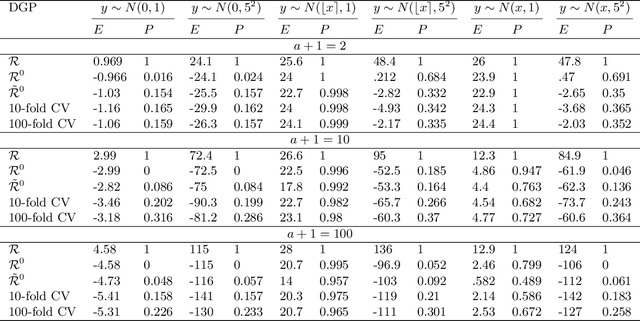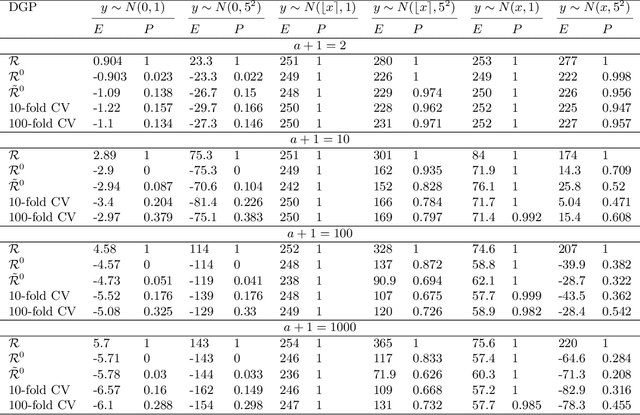Hans Julius Skaug
An information criterion for automatic gradient tree boosting
Aug 13, 2020



Abstract:An information theoretic approach to learning the complexity of classification and regression trees and the number of trees in gradient tree boosting is proposed. The optimism (test loss minus training loss) of the greedy leaf splitting procedure is shown to be the maximum of a Cox-Ingersoll-Ross process, from which a generalization-error based information criterion is formed. The proposed procedure allows fast local model selection without cross validation based hyper parameter tuning, and hence efficient and automatic comparison among the large number of models performed during each boosting iteration. Relative to xgboost, speedups on numerical experiments ranges from around 10 to about 1400, at similar predictive-power measured in terms of test-loss.
 Add to Chrome
Add to Chrome Add to Firefox
Add to Firefox Add to Edge
Add to Edge